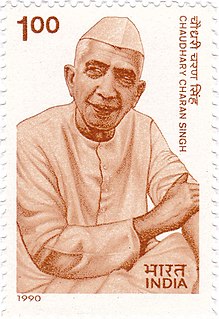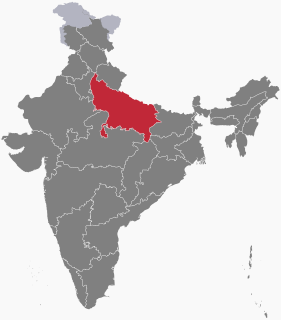| |||||||||||||||||||||||||||||||||||||
All 542 seats in the Lok Sabha 272 seats were needed for a majority | |||||||||||||||||||||||||||||||||||||
|---|---|---|---|---|---|---|---|---|---|---|---|---|---|---|---|---|---|---|---|---|---|---|---|---|---|---|---|---|---|---|---|---|---|---|---|---|---|
| |||||||||||||||||||||||||||||||||||||
 | |||||||||||||||||||||||||||||||||||||
| |||||||||||||||||||||||||||||||||||||
India held general elections to the 7th Lok Sabha in January 1980. The Janata Party alliance came into power after the elections to the 6th Lok Sabha held in 1977, riding the public anger against the Congress and the Emergency but its position was weak. The loose coalition barely held on to a majority with only 295 seats in the Lok Sabha and never quite had a firm grip on power.
List of Members of the 7th Lok Sabha, elected December 1979 – January 1980. The Lok Sabha is the lower house in the Parliament of India.9 sitting members from Rajya Sabha were elected to 7th Lok Sabha after the Indian general election, 1980.

The Lok Sabha is the lower house of India's bicameral Parliament, with the upper house being the Rajya Sabha. Members of the Lok Sabha are elected by adult universal suffrage and a first-past-the-post system to represent their respective constituencies, and they hold their seats for five years or until the body is dissolved by the President on the advice of the council of ministers. The house meets in the Lok Sabha Chambers of the Sansad Bhavan in New Delhi.
The Janata Party was an amalgam of Indian political parties opposed to the Emergency that was imposed between 1975 and 1977 by Prime Minister Indira Gandhi of the Indian National Congress. In the 1977 general election, the party defeated the Congress and Janata leader Morarji Desai became the first non-Congress prime minister in independent modern India's history.
Contents
Bharatiya Lok Dal leader Charan Singh and Jagjivan Ram, who had quit the Congress, were members of the Janata alliance but they were at loggerheads with Prime Minister Morarji Desai. The tribunals the government had set up to investigate human rights abuses during the Emergency appeared vindictive and a witch-hunt against Congress leader Indira Gandhi, who lost no opportunity of portraying herself as a harassed woman.
Bharatiya Lok Dal was a political party in India. The BLD or simply BL was formed at the end of 1974 through the fusion of seven parties opposed to the rule of Indira Gandhi, including the Swatantra Party, the Utkal Congress, the Bharatiya Kranti Dal, and the Socialist Party. The leader of the BLD was Charan Singh.

Chaudhary Charan Singh served as the 5th Prime Minister of India between 28 July 1979 and 14 January 1980. Historians and people alike frequently refer to him as the 'champion of India's peasants.'

Jagjivan Ram, known popularly as Babuji, was an Indian independence activist and politician from Bihar. He was instrumental in the foundation of the All-India Depressed Classes League, an organisation dedicated to attaining equality for untouchables, in 1935 and was elected to Bihar Legislative Assembly in 1937, after which he organised the rural labour movement.
Finally, the Janata Party, an amalgam of socialists and nationalists, split in 1979 when several coalition members such as the Bharatiya Lok Dal plus several members of the erstwhile Socialist Party withdrew support to the government. Subsequently, Desai lost a trust vote in parliament and resigned. Charan Singh, who had retained some partners of the Janata alliance, was sworn in as Prime Minister in June 1979. Congress promised to support Singh in parliament but later backed out just two days before the Govt was scheduled to prove its majority on the floor of Lok Sabha. Charan Singh, forced to resign, called for elections in January 1980 and is the only Prime Minister of India never to have faced parliament. In the run up to the general elections, Indira Gandhi's leadership faced a formidable political challenge from a galaxy of regional satraps and prominent [1] leaders of Janta party like Satyendra Narayan Sinha and Karpuri Thakur in Bihar, Ramakrishna Hegde in Karnataka, Sharad Pawar in Maharashtra, Devi Lal in Haryana & Biju Patnaik in Orissa. However, internal feud between Janata Party leaders and the political instability in the country worked in favour of Indira Gandhi's Congress (I), that reminded voters of the strong government of Indira Gandhi during campaigning.

Indira Priyadarshini Gandhi, was an Indian politician, stateswoman and a central figure of the Indian National Congress. She was the first and, to date, the only female Prime Minister of India. Indira Gandhi was the daughter of Jawaharlal Nehru, the first prime minister of India. She served as Prime Minister from January 1966 to March 1977 and again from January 1980 until her assassination in October 1984, making her the second longest-serving Indian Prime Minister, after her father.
Satyendra Narayan Sinha was an Indian statesman, participant in the Indian independence movement, a leading light of Jaya Prakash Narayan’s ‘complete revolution’ movement during the Emergency and a former Chief Minister of Bihar. Affectionately called Chhote Saheb, he was also a seven-time Member of Parliament from the Aurangabad constituency, a three-term Member of the Bihar Legislative Assembly, and a Member of the Bihar Legislative Council once. Regarded to be one of India's most influential regional people of the time, his reputation was synonymous with being a strict disciplinarian and tough taskmaster.
Ramakrishna Mahabaleshwar Hegde was an Indian politician who served as the tenth Chief Minister of Karnataka for three terms between 1983 and 1988. He was elected to the Karnataka Legislative Assembly in 1957, 1962, 1967, 1983, 1985 and 1989, and to the Rajya Sabha for two terms, 1978–83 and 1996–2002. He also served as Minister of Commerce and Industry in the Union government (1998–1999).
In the ensuing elections, the Congress (I) won 353 Lok Sabha seats in January 1980 and the Janata Party, or what remained of the alliance, won only 31 seats, whereas Charan Singh's Janata Party (Secular) won 41 seats. The Janata Party alliance continued to split over the subsequent years but it had recorded in 1977 a few important landmarks in the political history of India: it was the first coalition to govern India, and proved that the Congress could be defeated.











